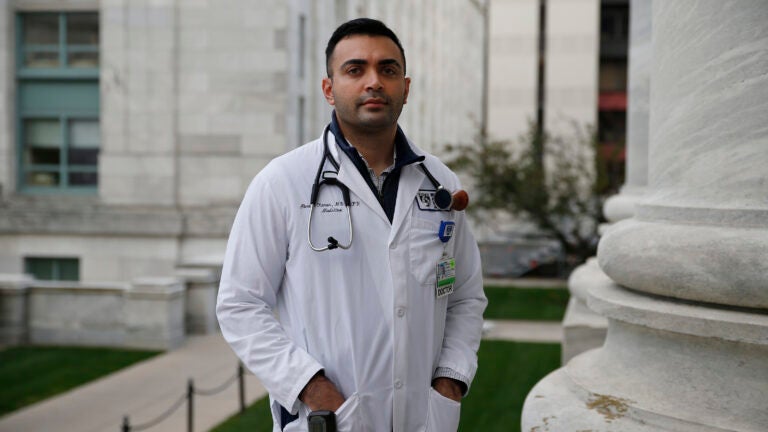“Last year was about understanding what we were dealing with, and we learned indispensable lessons.”

During the initial stages of COVID-19, when there was contradicting information being spread due to the uncertainty about the virus, there were many discussions held on what kind of masks were safe, whether to even wear them or not, and whether the virus was transmissible through air particles or surfaces, among other things.
An infectious disease doctor at Stanford university — who worked previously at Brigham and Women’s Hospital and Harvard Medical School, and on the Massachusetts state COVID-19 response — thinks there were key lessons that could have been learned earlier, which would have saved many more lives.
“I remember how much uncertainty there was — about how the virus primarily spread; about how best to protect ourselves as individuals, and as a larger public,” wrote Dr. Abraar Karan in an email to Politico, which was published in their newsletter. “Last year was about understanding what we were dealing with, and we learned indispensable lessons.”
Karan originally took his points to Twitter on Monday to list several actions that could have mitigated the spread of COVID-19 during the earlier months.
He mentioned that there should have been more precautions taken around the initial stages of COVID-19, including treating the virus as airborne until it was proven otherwise, providing everyone with safer masks such as surgical masks, and focusing on ventilation rather than wiping down surfaces.
Looking back at the initial responses toward COVID-19, Karan felt that medical experts and health officials did not do as much as they could have to help people understand how the virus was spreading. However, there was also a challenge in that no one had dealt with such extreme virus outbreaks before.
Rapid COVID-19 testing could have also contributed a lot more during the early stages of COVID-19 if it had been better utilized, Karan also wrote.
“We should have thought more creatively about the utility of diagnostics,” Karan said in the email.
During his time working with COVID-19 patients, Karan also saw that those who were getting sick the most were the underserved communities, many of whom were working jobs that were seen as “essential.” Karan said these workers should have been treated as “essential” humans as well, ones who were in need of health protection.
Karan also called out public health and government leaders, including himself, on their failure to communicate with transparency and accuracy. He says that they should have leaned on communications specialists to put the messages out there for them, which could have prevented confusion and mistrust.
“It’s not just about knowing what to do, but about getting it done,” Karan said.
Newsletter Signup
Stay up to date on all the latest news from Boston.com
"Many" - Google News
October 05, 2021 at 11:01PM
https://ift.tt/2Yl23Hl
‘We could have saved many lives if…’: Here’s what Dr. Abraar Karan says we got wrong about the COVID response - Boston.com
"Many" - Google News
https://ift.tt/2QsfYVa
Shoes Man Tutorial
Pos News Update
Meme Update
Korean Entertainment News
Japan News Update
Bagikan Berita Ini














0 Response to "‘We could have saved many lives if…’: Here’s what Dr. Abraar Karan says we got wrong about the COVID response - Boston.com"
Post a Comment